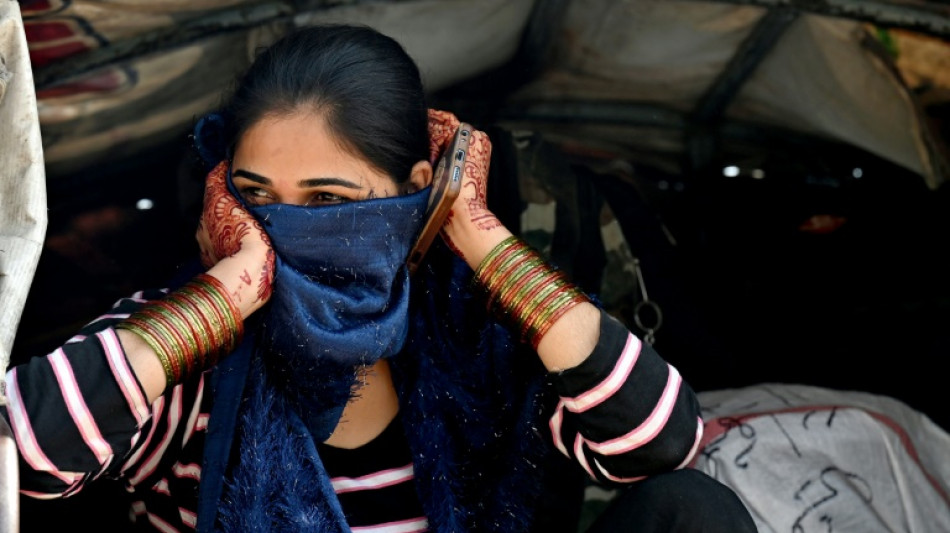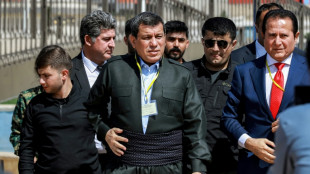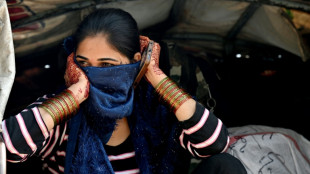

Families unable to reunite as India-Pakistan border slams shut
Indian business owner Rishi Kumar Jisrani has spent two days watching a messy scramble of people haul suitcases and drop loved ones at the border with Pakistan before it shuts, with dwindling hopes his family will be allowed across.
As relations between Islamabad and New Delhi quickly deteriorate, the neighbouring nations have scrapped visas and expelled each other's citizens, giving people just days to get to the frontier before it closes.
Jisrani, 39, fears it is already too late, with his Pakistani wife and their two children now stuck on the other side.
"They have told her that they can allow my children to come back, since they are Indian passport holders, but not her," he said, adding that he has received no advice from the Indian side.
"How can we separate a mother from her children?"
Since India accused Pakistan of backing a deadly April 22 attack on tourists in Pahalgam -- claims Islamabad denies -- the two countries have exchanged gunfire and diplomatic barbs. And at the busy Attari-Wagah border crossing, the fraying ties are painfully tearing apart the many families that straddle the divide.
There were no immediate figures on how many citizens of either nationality are in each other's country and are expected to cross.
On Saturday, a steady trickle of cars and rickshaws brought those leaving to the border, with relatives waving farewell at a police barricade.
- Emotional farewells -
Indian citizen Anees Mohammad, 41, managed to get his 76-year-old aunt, Shehar Bano, to the border just ahead of India's April 29 deadline to leave.
"She is old and sick and had come here to meet everyone in the family," said Mohammad, from Indore in India's Madhya Pradesh state.
Exhausted and emotional, he mopped his brow in the blazing midday heat as he bid his aunt goodbye.
"No one knows when and if we will meet again."
At the frontier, the cleavage of families has painful historical precedent. The end of British rule in 1947 violently partitioned the sub-continent into Hindu-majority India and Muslim-majority Pakistan.
This week's expulsion orders add to longstanding distress for families of mixed nationalities, who often struggle to obtain visas.
Jisrani said his wife, Savita Kumari, 35, is a Hindu like him and has a long-term Indian visa.
She has previously used that to travel from her home in India to visit her wider family in Pakistan. But that did not make a difference amid the latest tumult.
On Saturday, the hostilities did not appear to be de-escalating. The Indian army said its troops traded gunfire with Pakistan for a second day running, while Islamabad vowed to defend its sovereignty.
- 'Caught in the middle' -
Indian doctor Vikram Udasi, 37, said he and his Pakistani wife both rushed to reach the border crossing when the closure was announced, but arrived just too late.
"My wife and our four-year-old boy, Aahan, went there to meet her mother and the rest of the family," said Udasi.
He has been at the crossing since Friday, while his wife and their child are barred by officers barely a kilometre away.
"They are now stuck on the other side. They are not being allowed back. They are asking my wife to send the child," he said.
"Please allow them to return. Go ahead, cancel tourist and other short-term visas, but let those with families and long-term visas to return, please."
He condemned the attack in Kashmir, but despaired of the fallout on ordinary citizens like himself.
"Whatever the issues between the two governments, it is us who are bearing the brunt of it," he said.
"We are caught in the middle of it, suffering."
V.Bertemes--LiLuX



